Negotiating Patriarchy
and Gender in Africa
Dedication
To our mothers and daughters
and especially to Chika Edeagu for being a
driving force in our academic pursuits.
She makes it all worth it.
Negotiating Patriarchy
and Gender in Africa
Discourses, Practices, and Policies
Edited by
Egodi Uchendu and Ngozi Edeagu
LEXINGTON BOOKS
Lanham Boulder New York London
Published by Lexington Books
An imprint of The Rowman & Littlefield Publishing Group, Inc.
4501 Forbes Boulevard, Suite 200, Lanham, Maryland 20706
www.rowman.com
6 Tinworth Street, London SE11 5AL, United Kingdom
Copyright 2021 The Rowman & Littlefield Publishing Group, Inc.
All rights reserved . No part of this book may be reproduced in any form or by any electronic or mechanical means, including information storage and retrieval systems, without written permission from the publisher, except by a reviewer who may quote passages in a review.
British Library Cataloguing in Publication Information Available
Library of Congress Cataloging-in-Publication Data
Names: Uchendu, Egodi, editor. | Edeagu, Ngozi, editor.
Title: Negotiating patriarchy and gender in Africa : discourses, practices, and policies / edited by Egodi Uchendu and Ngozi Edeagu.
Description: Lanham : Lexington Books, 2021. | Includes bibliographical references and index. | Summary: This book examines the entrenchment of patriarchy in Africa and its attendant socioeconomic and political consequences on gender relations Provided by publisher.
Identifiers: LCCN 2021021712 (print) | LCCN 2021021713 (ebook) | ISBN 9781793642042 (hardcover) | ISBN 9781793642059 (epub)
Subjects: LCSH: Male domination (Social structure)Africa. | Sex discrimination against womenAfrica. | PatriarchyAfrica. | Women's rightsAfrica. | WomenAfricaSocial conditions.
Classification: LCC HQ1090.7.A35 N44 2021 (print) | LCC HQ1090.7.A35 (ebook) | DDC 305.31096dc23
LC record available at https://lccn.loc.gov/2021021712
LC ebook record available at https://lccn.loc.gov/2021021713
 The paper used in this publication meets the minimum requirements of American National Standard for Information SciencesPermanence of Paper for Printed Library Materials, ANSI/NISO Z39.48-1992.
The paper used in this publication meets the minimum requirements of American National Standard for Information SciencesPermanence of Paper for Printed Library Materials, ANSI/NISO Z39.48-1992.
Contents
Samuel Zalanga
Egodi Uchendu and Ngozi Edeagu
Claudia Berger
Ezinne Ezepue
Catherine Cymone Fourshey and Marla L. Jaksch
Tasara Muguti and Nyasha Mlambo
G. Nokukhanya Ndhlovu and Pius T. Tanga
Samuel O. Okafor
Valerie Delali Adjoh-Davoh
Joyce Agofure
Emaeyak Peter Sylvanus
Christiana Smyrilli
Hannah Muzee and Joyce Bayande M. Endeley
Victor Chidubem Iwuoha
Nneoma Onwuegbuchi
Ali Zamanpour
Elsab Boshoff and Louise du Toit
Raheem Oluwafunminiyi
April Petillo and Jane Eggers
Paula Tavrow, Sixtus Kennedy Otieno, and Elias Muindi
Olawale Isaac Yemisi
Samuel Zalanga
Director of Research and Publications
African Studies and Research Forum
The phenomenon of patriarchy and gender inequality is a global problem, but its manifestation in Africa is far more serious than in other regions of the world. Of course, even within Africa, it varies by countries, region within a country, ethnic groups, and religious communities. No country in the world has made serious progress in the area of inclusive development without seriously addressing the issue of patriarchy and gender inequality as formidable as they are. They are formidable challenges because often, by the time when one becomes conscious of such inequality, they have already been socialized to internalize the structures and processes of inequality as normal and natural. Challenging such structures and processes of inequality are made extravagantly difficult for numerous reasons, but in many cases, this is because the majority of people are so preoccupied by the urgent struggle for daily survival which leaves little time to think more deeply and critically about structures and processes that normalize domination. It is in this respect that I find the initiative and determination of Professor Egodi Uchendu to edit this book as very inspiring and pushing the needle in the long struggle for gender equality and fairness in Africa.
My first encounter with Professor Uchendu was at the 2007 annual meeting of the Association of Third World Studies in Lima, Peru. Subsequently, it was opportune for me to get to better know the scope of her scholarship and intellectual contribution to higher education in Nigeria and Africa when I was serving as a US Fulbright Scholar at Nnamdi Azikiwe University, in Anambra State, Southeastern Nigeria, during the 20172018 academic year. She organized a scholarly forum for me to present in her department at the University of Nigeria, Nsukka, Enugu State, Southeastern Nigeria. That occasion gave me the opportunity to appreciate the depth and scope of her scholarship and the role she is playing in mentoring younger scholars from diverse backgrounds. Compared to many professors in African universities, she is unique because she is intellectually restless and inquisitive about knowledge. She does not restrict herself to teaching alone but commits herself to empirical research with the primary goal of bringing greater cross-cultural hermeneutic understanding as a step towards the struggle for a more just and fair society for all. It is in this respect that she needs to be highly commended for this book on patriarchy and gender inequality that she has edited together with another brilliant Nigerian female historian, Ngozi Edeagu, who teaches at Alex Ekwueme Federal University, Ndufu-Alike, Ebonyi State, Nigeria. Ms. Edeagu previously studied for her B.A. at the University of Nigeria, Nsukka, where Professor Uchendu recognized her potential. She subsequently received an M.A. from Oxford University in England, and is currently pursuing a Ph.D. in Germany.
After working for six years as the Associate Editor for Africa in charge of peer review process for the then Journal of Third World Studies , I quickly arrived at the conclusion that, broadly speaking, one of the scholarly areas that received the least attention in terms of journal articles submitted to the journal from Africa was gender inequality and patriarchy. It appeared that many concerns crowd out the focus on patriarchy and gender inequality. But a subliminal factor and explanation for such a situation is that most of the scholars in Africa are males and many male scholars in Africa for numerous reasons find it less interesting to engage deeply with scholarship in the area of patriarchy and gender inequality. I was therefore highly excited in my capacity as the Director of Research and Publications for the African Studies and Research Forum when she offered to pursue this book project as part of the African Studies and Research Forum Book Series.
There are several reasons why this book is a phenomenal contribution to the study of patriarchy and gender inequality as part of the broader struggle for a more just and egalitarian African society. Any society that ignores the need to seriously and honestly address the issue of gender inequality and patriarchy will do so at its own peril. This is so because social science research has extensively documented the enduring role of mothers in shaping children, the effect of which remains with them sometimes throughout their lives. The book in terms of methodological approach emphasizes interdisciplinary and triangulated method of interrogating a question using different sources of data and methods of analysis. It also examines the issue of gender inequality and patriarchy as a multifaceted issue while acknowledging how diversity across Africa mediates how gender and patriarchy are manifested. The social science literature has documented as part of the broader study of inequality and stratification that gender inequality and patriarchy can be traced back to ancient times and it exists universally in diverse forms. In addition to that, it is dynamic and consequential as it affects the life chances of women in decisive ways. One major highlight of the book is the logic that informed its structure.

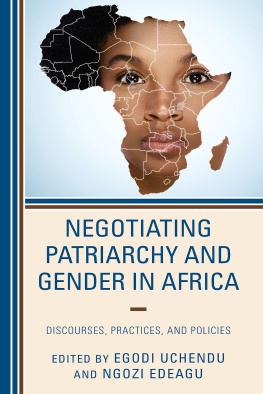
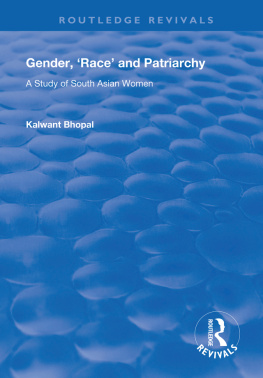

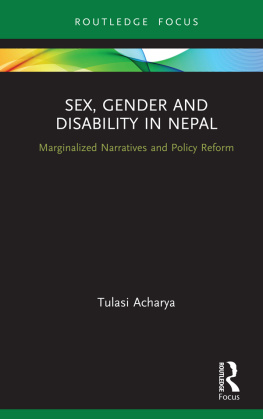

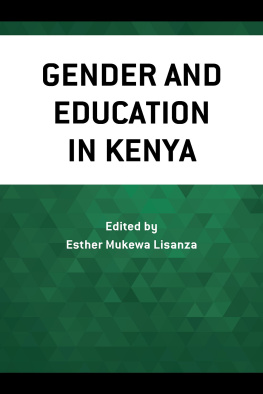

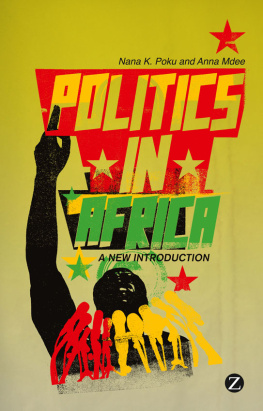
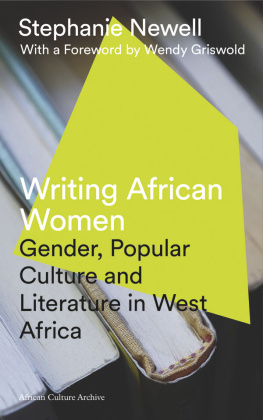

 The paper used in this publication meets the minimum requirements of American National Standard for Information SciencesPermanence of Paper for Printed Library Materials, ANSI/NISO Z39.48-1992.
The paper used in this publication meets the minimum requirements of American National Standard for Information SciencesPermanence of Paper for Printed Library Materials, ANSI/NISO Z39.48-1992.